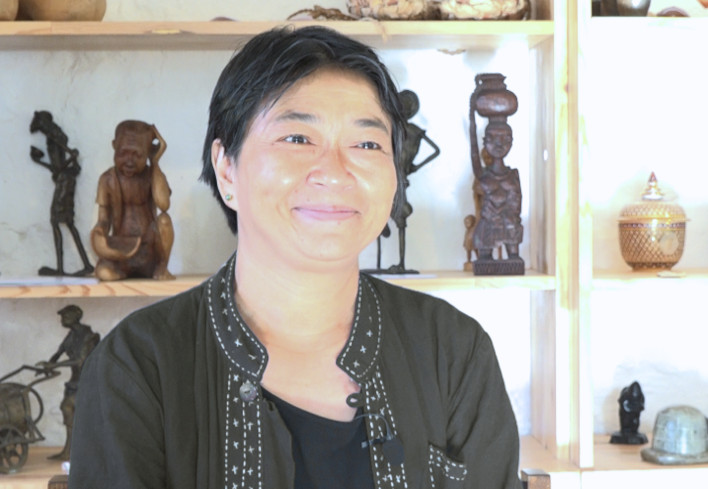International Committee for October 17: President’s Message

By Aye Aye Win, President of the International Committee for October 17

Dignity in Practice for All
On October 17, we will commemorate the United Nations International Day for the Eradication of Poverty – a day to honour the millions of people enduring the silent and sustained violence of poverty. For 2023, we are highlighting “Decent Work and Social Protection” as drivers in achieving dignity in practice.
The right to work has been promised to all of us in the Universal Declaration of Human Rights and reaffirmed in binding international human rights law as well as in Agenda 2030 – the global goals of the United Nations.
Yet the reality of decent work and social protection, particularly for people living in extreme poverty, is far from the promise.
Unregistered, unrecognised and unprotected
Many people in poverty work in the informal economy – unregistered, unrecognised and unprotected under labour legislation facing difficult and dangerous conditions every day. The most excluded have no choice but to accept unacceptable situations and are often seen and treated as ‘disposable’. Despite working long hours and often holding multiple jobs, they are unable to earn enough to support themselves and their families.
The most excluded perform useful jobs, for example they have been the trendsetters in repair, reuse and recycle – decades before the ‘circular or the green economy’ concept became popular.
Despite their economic, social and environmental contribution, their work is not recognised or dismissed by society.


Play with YouTube
By clicking on the video you accept that YouTube drop its cookies on your browser.
Women, a majority of the informal labour
Women, who form a majority of the informal labour force are likely to be the lowest paid, most marginalised and more susceptible to harassment at work. Again, despite women’s work contributing to the family, the society and the larger economy, the care and household work is unrecognised, unpaid, undervalued and left out of policy agendas.
Over the next decade, one billion young people will try to enter the job market, but for most of them, the prospect of finding decent work is grim.
Build a brighter future
To build a brighter future for the young, for the people left behind, for all of us, we call for decent work – one that offers a fair wage, a living wage in safe working conditions.
Decent work, that unleashes the potential of the circular economy, work that can be found in disinvested neighbourhoods where the most excluded live. Decent work that enables control over income earned and transforms unequal power relations in the workplace. Work that addresses the hidden dimensions of poverty, one that promotes cohesion by inviting excluded individuals back into public life. Decent work that provides income security so that people can confidently plan their future and lift themselves out of persistent poverty and allows for a life in dignity.
A right to income security
Life’s journey is full of uncertainties and everyone, including those outside the labour force – the children, the elderly and the people who are not able to work, have a right to income security, to be protected against risks to their well-being. There’s so much wealth in this world and it’s only a matter of making the right policy choices to ensure Universal Social Protection becomes a reality. In designing social protection schemes, we must do so, not in the fancy offices of the ministers or policy makers but in the homes, communities and disinvested neighbourhoods of the rights holders, with their full involvement, so that funds are not wasted in complex administrative practices but effectively reach where they are most needed.
A ray of hope
October 17 shines as a ray of hope, a day for the furthest behind to take their rightful place as first priority in policy decisions, a day to remind us to use human dignity as our compass in all decision making, a day to join hands and pledge to work together to achieve dignity in practice for everyone.

